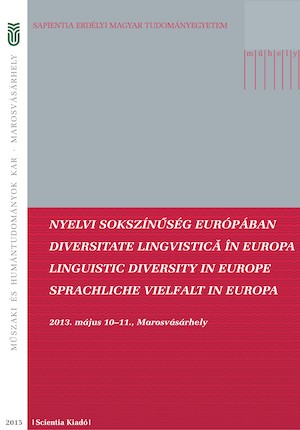GLOBALIZÁLÓDÓ TARTALMAK A TÖBBNYELVŰ EURÓPÁBAN, AVAGY: TÖBB NYELV – TÖBB KULTÚRA?
GLOBALIZING CONTENT IN MULTILINGUAL EUROPE OR SEVERAL LANGUAGES – SEVERAL CULTURES?
Author(s): Anna Kós
Subject(s): Media studies
Published by: Scientia Kiadó
Keywords: multilingual Europe; globalizing effects; content of television programmes;
Summary/Abstract: There might be several occasions in the history of a nation when due to a strong cultural shock it is forced to incorporate attitudes and principles that are very different from its national features into its way of thinking and actions and, as a consequence, into its communication as well. In a statement – especially if it appears in the media – language and content should be separated. I consider that, due to the fact that the media tools of the 21st century are much more efficient, existential principles and cultural conceptions, different from or even opposing the traditional Hungarian perspective, have gained power in public opinion. The lack of language skills does not offer protection against (not even European, but rather American) globalizing effects. Because of the globalizing content that has invaded all media, the consumer will get an American product even if information is conveyed in his mother language. This study analyses the globalizing structure of the content of television programmes.
- Page Range: 53-65
- Page Count: 13
- Publication Year: 2015
- Language: Hungarian
- Content File-PDF

